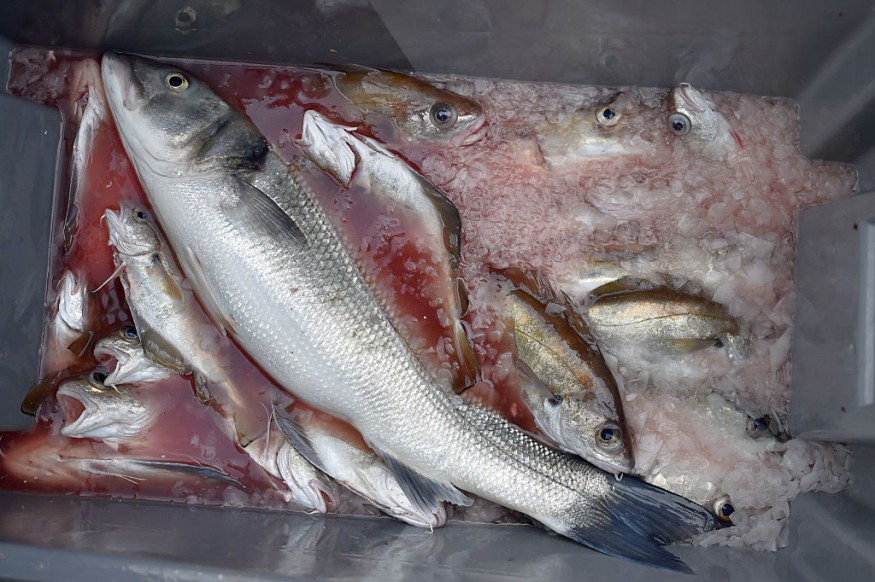Hundreds of little white fishing boats dot the dark blue seas off the coast of Veracruz on the Gulf of Mexico every morning. The majority of the crews, many of whom have been fishing for decades, use traditional tactics, such as utilizing nets to catch enormous quantities of fish, which slowly asphyxiate once out of the water.
However, a handful of fishermen are experimenting with a technique that originated in Japan years ago. According to The Guardian, it's a fish-slaughtering procedure that mimics the ike jime process, based on a fundamental scientific principle: the less pain the fish endures, the fresher the flesh remains.
Ike Jime
Even before the fish is taken out of the water, Ike jime begins. It is based on manipulation, temperature, and cleanliness, which are rarely considered. Fish are caught with hooks rather than nets and are always taken out of the water alive to be thrown back in if they aren't big enough, according to the Michelin Guide.

After the fish has been captured, the brain is usually separated from the spinal cord using a tiny knife. The fish is placed in chilled water after it has been paralyzed so that 80 percent to 90 percent of its blood has been drained from its body. This is a crucial stage, according to experts, because it is the blood that has the notably fishy flavor that adds to the product's short shelf life.
The guys in Veracruz who have begun to use ike jime-influenced techniques are members of the Nuestra Pesca initiative, an artisanal fishing group founded by Erik Guerrero, a chef. Guerrero resigned his position as a senior chef at Pujol, a well-known restaurant in Mexico City, in 2015 to return to his state and create his restaurant. However, when he realized that the quality of the seafood he was obtaining was only good for a few days, he began looking into how he might buy and distribute it himself.
Compared to Commercial Fishing
Unlike large-scale industrial fishing, which prioritizes number above quality, ike jime is a time-consuming, hands-on technique requiring a reduced fishing fleet. Fishers in Veracruz used to capture fish in big nets, but today those who work with Nuestra Pesca catch fewer fish and scrutinize each one with a highly sharp wire - a gadget that has replaced the traditional knife.
If it passes Nuestra Pesca's inspection, they imitate ike jime by cutting a quick incision beneath its fins and draining its blood.
In addition, Guerrero's crew can catch less fish by using ike jime instead of industrial fishing. They follow many of the same concepts as the farm-to-table movement, such as only eating fish that are in season and avoiding the larger, apex species that keep ocean ecosystems in checks, such as sharks, marlins, swordfish, and others.
It has not been simple to persuade traditional fishing communities to convert from a strategy that supports large output to one that takes what is required.
"Fishermen weren't used to doing it this way," says Guerrero, who started with one boat and now has over 100 men under his command. He had to persuade each one to convert and show ike jime's, merit - something that does not happen immediately "when you have three or four generations who have done things a specific way."
He expresses sympathy for his sailors, citing the difficulty many had when switching from net to hook. They used to capture dozens of fish at once, but today they might only catch one or two fish in 12 hours.
"If the product weren't fantastic, it wouldn't succeed," he adds.
Charging Extra
Nuestra Pesca can also continue business since they can charge more for a kilo of ike jime fish than they could for catches made with their old methods.
Nuestra Pesca has teamed up with academics from Veracruz University's fish and marine sciences institute to assess the long-term impacts of such a change in fishing tactics. "It's not the only site in the world that does this, but it's a fascinating case study," says one of the researchers, Dr. Leo Ortiz-Lozano, who specializes in coastal zone management and conservation.
He had no idea that ike jime was practiced on fish other than tuna outside of Japan until Nuestra Pesca. "It's truly our favorite project," he says now, referring to how it has been transformed in Mexico.
Respectful Execution
Ortiz-Lozano appreciates how treating fish with more respect is altering resource usage. He claims that everything is interconnected.
"Normally, fish are not regarded under animal rights standards," he explains, "but this is demonstrating respect to the person." "If fisherman performs well, the environment benefits, and the consumer benefits as well."
Read also: Real Extent of Overfishing: How this Disruptive Behavior Can Cause Irreversible Destruction
For more news update about Environmental Action, don't forget to follow Nature World News!
© 2025 NatureWorldNews.com All rights reserved. Do not reproduce without permission.





